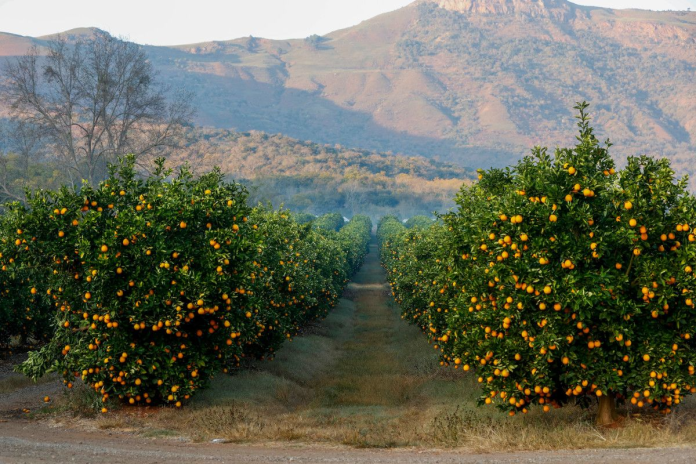JOHANNESBURG, NOV 14 (AFP/APP/DNA):Citrus growers in South Africa are among the businesses most nervous that duty-and-quota-free exports to the United States could be scrapped next year when Donald Trump takes office again.
The fruits are among 1,800 products across 32 African countries benefitting from preferential market access under the African Growth and Opportunity Act (AGOA), with companies in South Africa, Kenya, Nigeria and Ghana reaping the most dollars in profits.
But with president-elect Trump having vowed to impose at least a 10 percent tariff on all imports to the United States, there is no certainty that AGOA will be renewed.
Analysts say the legislation, passed in 2000 and set to expire next year, could be modified if not withdrawn altogether, with potential negative ramifications for companies and jobs across Africa.
“We need this competitive edge,” Justin Chadwick, CEO of the Citrus Growers’ Association of Southern Africa (CGA), which also represents Zimbabwe and Swaziland-based orchards, told AFP.
“Should South Africa be removed from AGOA, thousands of rural jobs could be impacted, as well as over a billion rand ($55.5 million) in export revenue could be lost,” he said.
One food producer in the Eastern Cape province told AFP that if AGOA were not renewed, it would “kill” their business.
The South African company, which asked to remain anonymous, said it employed more than 3,000 people and exported an average of 350 containers of sorbet products per year to the United States, where they are sold at a major retailer.
– Hope for the best –
Another industry that could feel the heat if AGOA is shelved is the automotive sector, though some companies are betting that US consumers might accept higher prices.
“I don’t foresee any major changes in the buying patterns of Americans around the products that we supply,” said Ken Manners, managing director at SP Metal Forgings Group, a South African company that exports vehicle parts to the United States.
Even if tariffs were imposed, “it certainly wouldn’t be life-changing in terms of our ability to supply competitively,” he told AFP.
“The product base that we supply in the US is very difficult to source anywhere else, so ultimately even if the US put higher tariffs, the US consumer would end up paying for it.”
Whether AGOA is renewed or not, it should not have much impact on the broader South African economy, analysts said, though companies should still prepare for changes.
“On the whole of the economy we’re not even talking one percent,” said Johannesburg-based economist Dawie Roodt.
But “in an environment where the economy is hardly growing or growing very weakly, every little bit helps and adds up”, he said.
In any case, “it won’t be business as usual,” said Ronak Gopaldas of the London-based consultancy Signal Risk.
“The reality is that Trump and his economic policies are unpredictable, volatile and erratic. You don’t know how far on the extreme he’s going to go.”
“So I would say an effective strategy is to expect the worst and hope for the best,” he said.

















